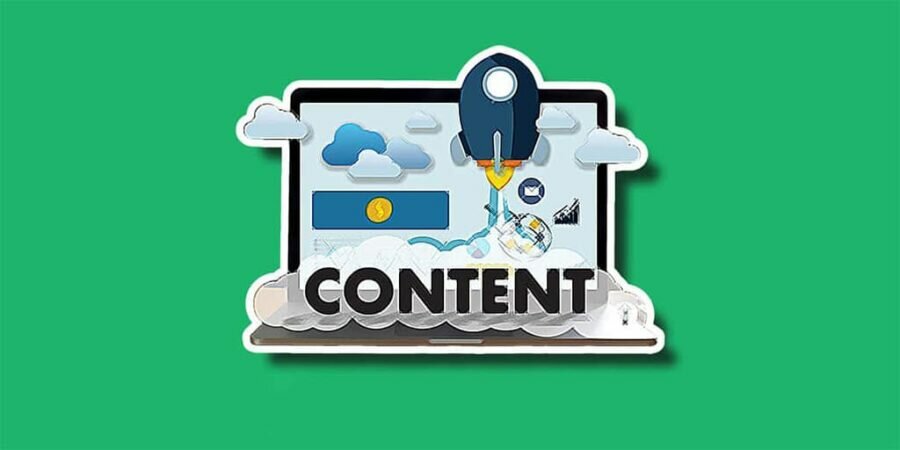The short answer
Content marketing can be likened to the way a car works: content is the fuel and strategy is the engine. Just like a car that needs to be refueled, content marketing is important for your business because it powers its assets while informing future and existing customers on topics relevant to your industry.
It’s no secret that content marketing is all marketers rave about in 2020, but there’s often a disconnect between what marketers believe to be important and what actually matters for your business.
Fortunately, this is not the case with content.
This technique is just as effective at helping you grow your business as it is to keep future customers informed on your industry.
» DOWNLOAD NOW: Start Your Content Strategy with a Buyer Persona Template
So, why is content marketing important for your business?
What makes it such a compelling option in the vast landscape of digital and inbound marketing? And can it really make the difference for a startup?
All of this and more in today’s blog post.
So, what is content marketing exactly?
It’s helpful to get a quick refresher on what content marketing is, and what it isn’t. As defined by the Content Marketing Institute:
“Content marketing is a strategic marketing approach focused on creating and distributing valuable, relevant, and consistent content to attract and retain a clearly defined audience — and, ultimately, to drive profitable customer action.”
Pay close attention to the part that says ultimately.
Content marketing is about building trust with your future customers while retaining engagement with your existing ones.
It really is the glue that keeps all of your business assets together and, ultimately, it makes for stronger sales. This means that it takes time for content marketing to show its monetary component.
However, this doesn’t mean that the strategic component is any less valuable. If you believe in the mission behind your business, you also believe in committing to it for the long term.
That’s what content marketing is all about: delivering content for an audience that is looking for your take on the matter and that will wildly boost engagement with your brand in the long term.
Why is content marketing important for your business?
There is a lot that content marketing can do to help your business succeed. We’ve compiled seven of the best reasons why your business should start with content marketing, and why it’s important to keep at it for a long time.
1. Building a personal connection with your future customers
Forget all you know about business and marketing for a moment and think about your potential customers, the people who are looking to solve a problem by actively researching for a solution (not necessarily your solution).
Initially, they are lost. They’re experiencing some kind of pain, and they haven’t identified a name for it—they haven’t labeled it yet.
That’s where your content comes in.
As a service provider, or as a product maker, you need to identify your audience’s pain points preemptively and match them to your offering.
But here’s the kicker…
With content marketing, you’re not trying to sell them anything; you’re simply giving them the answer to their query, telling them which next step they should take and how they should go about it.
This establishes trust.
Since you put yourself in your audience’s shoes beforehand, they feel grateful, and they naturally gravitate towards connecting with your brand.
This can happen in the form of a newsletter signup, a comment on your blog post, a mention on social media, or any other touch point (as marketers like to call them).
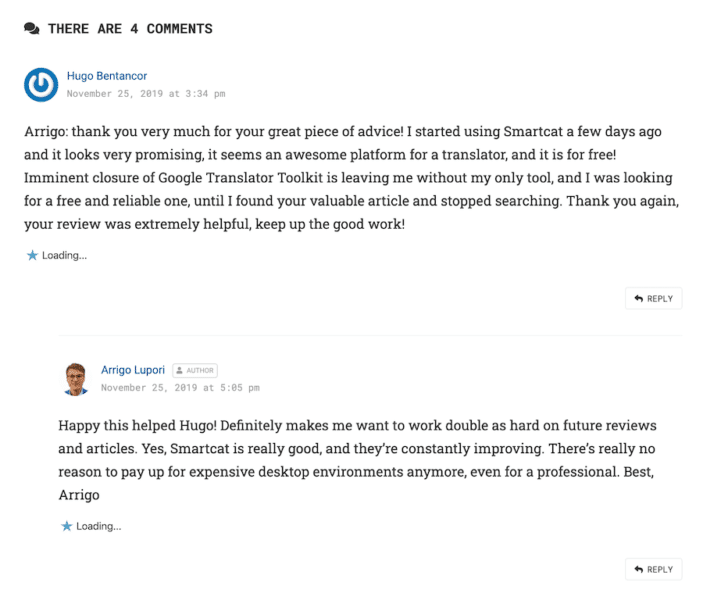
The overall journey that your future customer goes through is called the buyer’s journey. HubSpot has an amazing repertoire on this, so we’ll link some of their content down below.
More reading on the buyer’s journey:
2. Learning more about your industry and becoming a thought leader
Think you know it all about your industry? We encourage you to think otherwise. Industry leaders are data-driven, investigative, and constantly curious about their surroundings.
Even when extremely skilled and experienced in a particular niche, they know that better, more thorough, and more accurate information is always lurking around the corner, probably coming from a hungry competitor.
That’s when you have to take action.
As a business, your content is your take on the industry you operate in. Without a content tilt, your organization is just a name listed in a directory.
The tilt is what separates you from everyone else in your market area, and it helps you drive your firms’ thought leadership forward, clearly impacting the lives of people in your industry and beyond.
Content marketing is all about providing relevant information and educating your audience on your industry and how it can benefit them.
As a brand, it’s you who should take the steps necessary to get people excited about the opportunities your industry is offering—not the other way around. This helps you achieve relevance in the marketplace, even among competitors.
More reading on thought leadership:
3. The barrier of entry is reasonably low while returns are high
Yep, it doesn’t cost that much to start producing content!
You simply need a basic strategy, some good ideas, a bit of data to help you with discovery, a text editor, and a bit of patience with both researching and writing content that your audience will love.
However, writing great content isn’t as easy as writing good or average content. And, unfortunately, even good content doesn’t really cut it in today’s marketplace.
If you’re serious about your content marketing, you have to strive for greatness from the get go.
That’s because content marketing shows its muscles as you progress with your strategy and, if the overall setup isn’t great, your content won’t perform as well as you’d like it to. This is why it’s crucial to have a strategy in place.
You need to digest the data before you start writing.
One thing that you have to think about is search intent. Remember this word because you’ll hear marketers talk about it a lot in the coming months and years.
Without getting too technical, Google is changing the way they look at search engine results, and they want brands to start answering audience queries more directly rather than create fluff content.
Ok, but what do you get out of creating great content then?
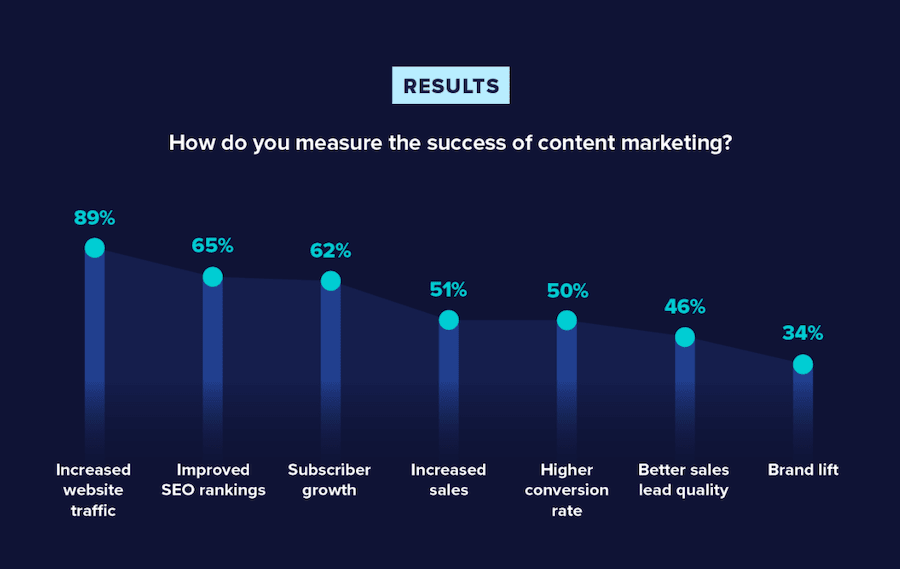
- Increased website traffic
- Improved SEO rankings
- Subscriber growth
- Increased sales
- Higher conversion rates
- Better lead quality
- Brand recognition
All of this while delivering value for your future and existing customers. Sounds like a pretty good deal to us, no?
This is what the data says.
Even better, brands are recognizing the power of delivering emotional impact in their content, establishing trust with their audience for longer.
More reading on content budgeting and ROI:
- How To Do The Best Marketing on a Limited Budget
- How To Maximize Your Startup’s Content Marketing Budget
- Measuring the Return and ROI of Content Marketing
4. It drives profitable action that scales with time
The more time goes by, the more your content marketing works on your behalf without you doing anything. This is described well both in HubSpot’s flywheel model and our guide to consistent online growth.
The idea that creating valuable content fuels your business and helps it grow with more and more velocity is absolutely true.
However, getting there takes time, so let’s be clear—content marketing does NOT automagically help you sell more the day after you start working on it.
You should not expect this.
Instead, what you should expect is a gradual, consistent improvement in the way your brand is perceived by a targeted audience.
It’s this notion that drives profitable action over time.
Your audience doesn’t necessarily represent a potential buyer. It could be anybody interested in your field, or it could be somebody interested in a topic related to what you do and your niche.
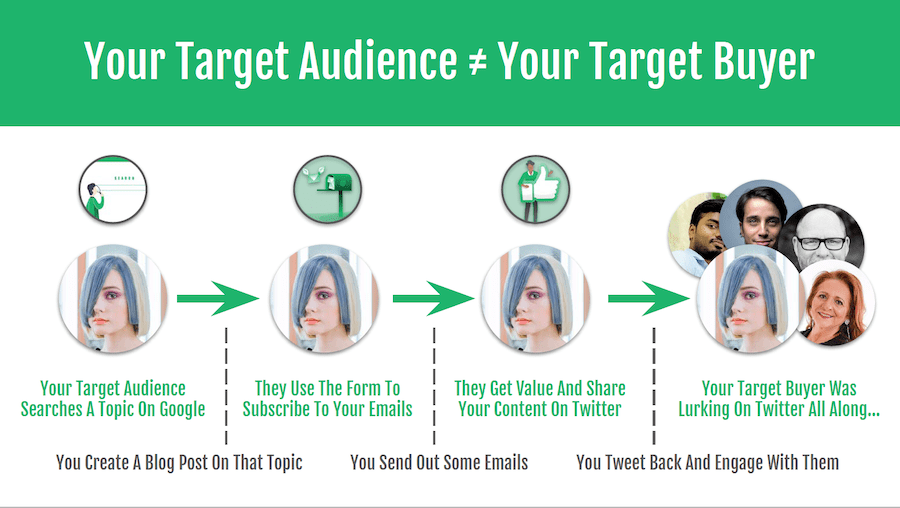
As long as the people who consume your content have a stake in your industry, it’s great that they’re coming in contact with your brand.
That way, clients are more likely to investigate your products or services while professionals are more likely to recommend you in case they hear about someone who could benefit from your offering.
It’s a win-win situation for both your brand and your audience.
More reading on brand ambassadors and fanocracy:
5. The impact it has on people is stronger than you’d think
Think about the impact of your content when it reaches peak popularity. Hundreds if not thousands of people reading the words that you’ve written and consuming your brand experience. Isn’t that exciting?
Let me tell you, it really is.
Ever since I launched my first professional blog, I’ve felt what it means to have an impact on others’ people growth, and your firm is likely to have that same experience when first producing content.
It’s like magic, except that it’s not.
You can control this kind of behavior once you have enough data in your hands, and you can offer your audience value in the form of content before they even realize they had a problem.
That’s the power and the impact of content marketing.
More reading on the impact of content:
6. It improves your relationship with existing customers
I’ve had so many business owners tell me things like: “My clients wanted to see an empathy map!” or “They needed some visual cues for the methodology…” yet many—if not all—founders (and even marketing departments sometimes) will immediately follow up with:
“Well, I just don’t know how to make these things! Where do I get the data from? How do I make them look interesting? Where do I post these infographics?”
Content is about building relationships. Be it from organic search, or with an existing customer, content can be used for many different purposes.
When it comes to helping your existing customers, you want to talk to them directly, and have that kind of conversation where their feedback enables your thought leadership and vice versa.
Where do your current customers spend most of their time? Is it LinkedIn? Facebook? A private community? That’s where you want to be and—with organic storytelling—you can distribute these pieces of content to have them continuously engage with your brand and interact with it.
More reading on marketing to existing customers:
- The Value of Content Marketing To Existing Customers
- Using Content Marketing To Drive Customer Delight
7. There’s a clear path to implementing it
Content marketing is subject to a lot of studies.
That’s because—today—people consume so much content that standardizing its production has become commonplace.
Statistical data helps with achieving the best results, and it’s what most marketers are looking for.
At Koala Rank, this data helped us create a clear process for new brands and startups alike. It’s an effective way to get content that ranks and builds trust with your audience, and it was created with the modern startup in mind.
When you think about content marketing, you really have to think about how effective it is though. Providing the absolute best experience out there is great, but you also have to think about driving results for your business.
Quality matters, but results are more important. So, one of the most effective ways to start your content marketing journey is this:
- Talk with somebody who knows about this space and align your business mission and values with your future content efforts.
- Brainstorm a variety of topics that are related to your product or service and have your entire team chime in. You want everyone to look at this.
- Gather data based on the topics and divide it into different subtopics with all relevant metrics. You might want to talk to an expert about this.
- Create a complete strategy and use tools such as Airtable (Koala Rank’s trusted tool for strategizing) or Google Sheets to keep track of it. This is a business asset that will last forever.
- Start piecing the information together, and prioritize specific topics or subtopics based on business relevance.
- Brainstorm content ideas based on your sheet.
- Set base and stretch performance goals for each piece of content.
- Produce, publish, and distribute the content.
While it might look simplistic to focus less on production and more on strategy, the reality is that strategy drives everything in content marketing.
If you don’t know what your audience cares about, you won’t know what to produce. On the other hand, if you have enough data showing you what your audience is looking for, production will be just a matter of filling in the gaps.
More reading on content marketing strategies:
- How To Build A Successful Content Marketing Strategy From Scratch
- Content Strategy: 5 Essential Steps For Performance Marketers
These were seven reasons why you should start with content marketing, but let’s be clear… At some point in the next decade, content marketing won’t be a viable solution for all startups and new brands.
That’s because organizations are offering richer content experiences by the day, and it’ll be extremely hard to beat them as they expand.
If you want to do so, you really have to start now.
At the moment, content is the business asset you should focus on. It’s growing like crazy, and it’s taking more than 41% of all marketing budgets with it.
That’s no joke.
In 2020 and beyond, building trust with your audience will be paramount to your brand’s and your business’ success.
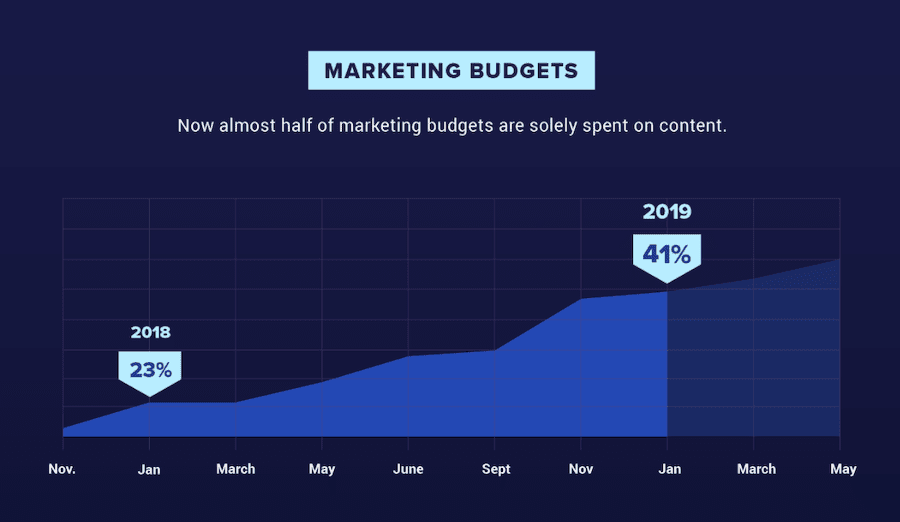
So, in conclusion…
Yes, content marketing is important for your business
You can’t avoid it, you can only embrace it. Content marketing is here to stay, and your business will benefit immensely from it.
From the smallest of startups to the biggest of corporations, everyone is producing content, but not all companies are doing it right.
We want to change that. Book a 100% FREE, 45-min call with Koala Rank and get your first steps with professional content marketing. No strings attached. We don’t want you to lag behind. We want you to thrive.
So start with content marketing—today!

Originally published Jan 24, 2020 – Updated Jul 24, 2020
Frequently Asked Questions
Content marketing helps businesses in three different ways: 1) increased website traffic, 2) subscriber generation and, 3) high-quality lead generation. All three are true of content marketing and they lead directly to sales as a result.
Content marketing is effective because it helps you establish trust with your future and existing customers. This is done via a truthful exchange of value through online content on various platforms: blogs, social, communities, etc.
A content marketing strategy is usually made up of three things: 1) a target audience persona, 2) a keyword research sheet and, 3) an editorial calendar. These things allow any brand to create a long-term strategy that helps them drive organic growth for their product/service.

